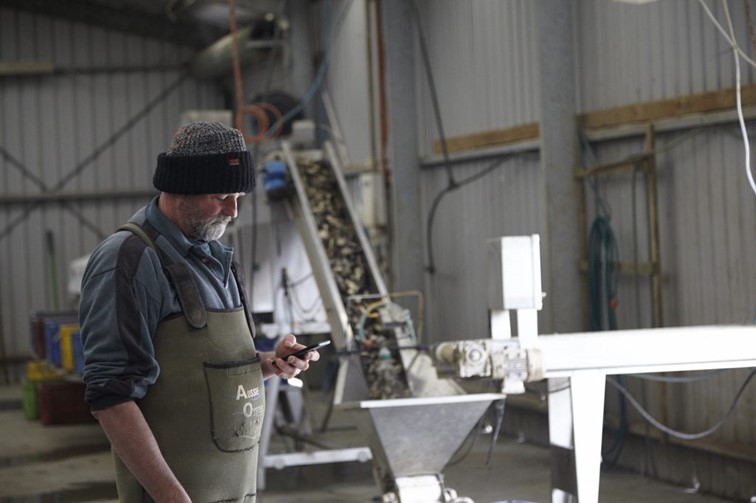Pioneer Behind “Internet of Oysters” Now Looking to Sustainably Feed the Planet
Re-posted from the Microsoft Transform blog.
Ros Harvey has been a pioneer when it comes to using technology to improve the lives of millions of people. After having recently upended oyster farming in Australia with her work on the "Internet of Oysters", she decided to expand her business, which is called The Yield, to help agricultural farmers feed the planet in a more sustainable way. Learn more about this plucky entrepreneur's cutting-edge work, which involves sensors, IoT and analytics in the cloud, and – more importantly – the tenacity to find sustainable business models that work for communities.
Internet of Oysters
Tasmanian marine farmers produce about 36 million oysters a year. But one challenge they face is that regulators shut down harvesting during heavy rains, when contaminants may enter into oyster bays. Harvey's solution used sensors connected to the Azure IoT Suite to analyze the water that oysters drink. By analyzing this information using machine learning and advanced analytics in the cloud, her team is able to make data-driven predictions that are shared with growers and regulators in real-time. The Yield's technology reduces unnecessary harvesting closures by 30 percent, saving Tasmanian growers millions of dollars. Two government food authorities and over 300 oyster growers already rely on The Yield in its first year of operation.
How to Feed the World (without Wrecking the Planet)
Not one to think small, Harvey has expanded her sights to tackle one of our biggest global challenges, namely how to feed the planet. To do so, we need to increase food production 70 percent by 2050. Meanwhile, agricultural productivity has been stagnant for decades and we are forced to cope more input constraints and climate change. Farmers struggle with the uncertainty of weather and its impact on the business of growing food. This is especially true for irrigated perennials such as cherries, apples, avocados, mangoes, nuts and grapes, which are high-margin and need intensive support. Micro climate conditions drastically affect decisions on when to plant, harvest, irrigate, feed and protect these crops but the world's weather forecasting systems are done on a "very coarse, 25-by-25-kilometer grid," Harvey says.
So The Yield's newest IoT effort has to do with dealing with the weather on each farm, each field, each row and even each plant, to help growers optimize decisions that save money and make farming more sustainable. The system predicts the weather and converts it into crop-specific knowledge. The idea is use this data and these models and predictions to develop apps that take the guesswork out of farming, starting with when and how much to water crops. Learn more about her latest effort in the video clip below:
[embed]https://youtu.be/0EK15i7CUsY[/embed]
As Harvey says, "Technologists are in love with the technology, but with my background in international development, my starting point is always the business problem that needs to be solved. International development is littered with examples of donors throwing money at something, and when the money dries up, it all collapses. So you need to find a sustainable business model and work with the community you're serving to make sure you're meeting a real need and a real purpose. And that underpins how I think about technology."
Read more about Harvey's remarkable story at the original blog post here.
CIML Blog Team
